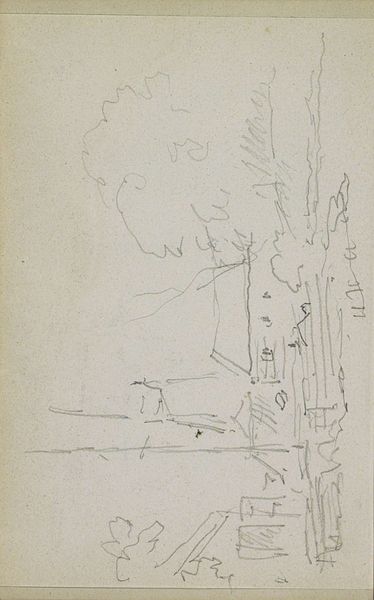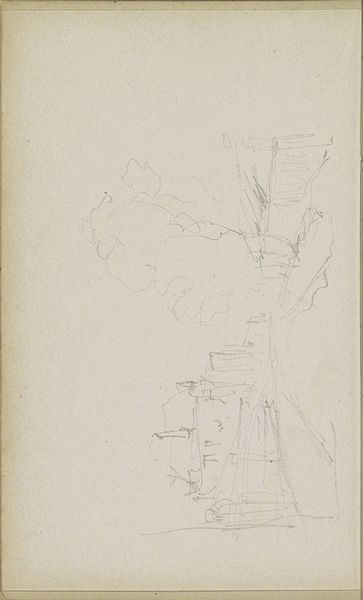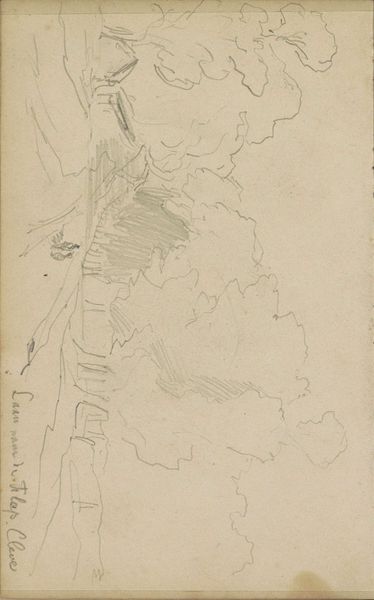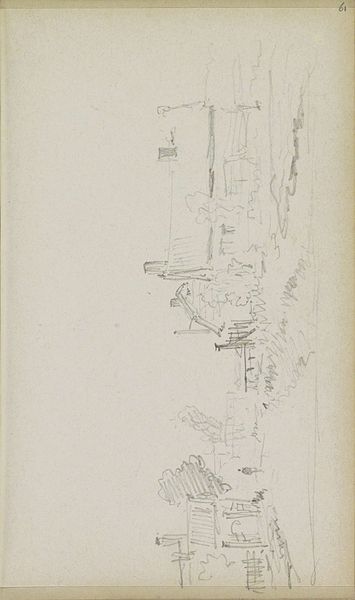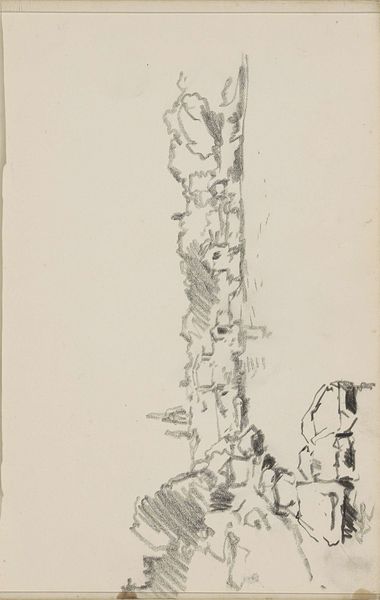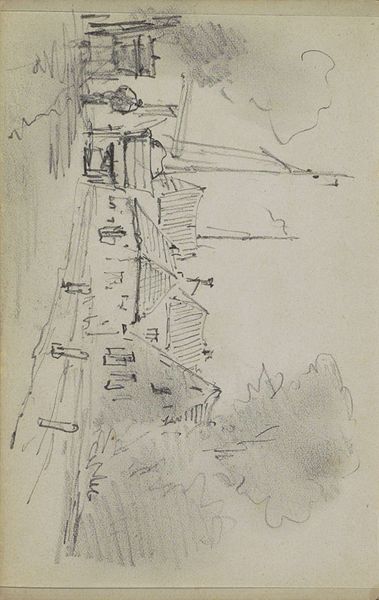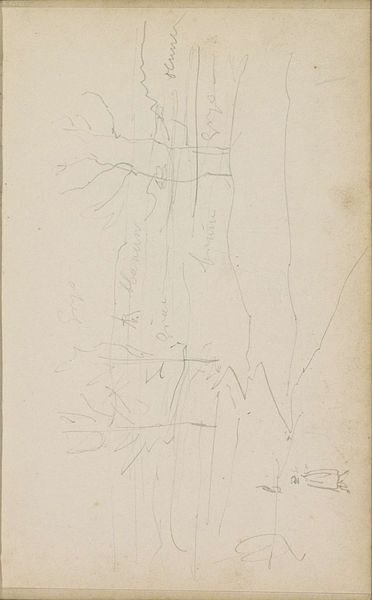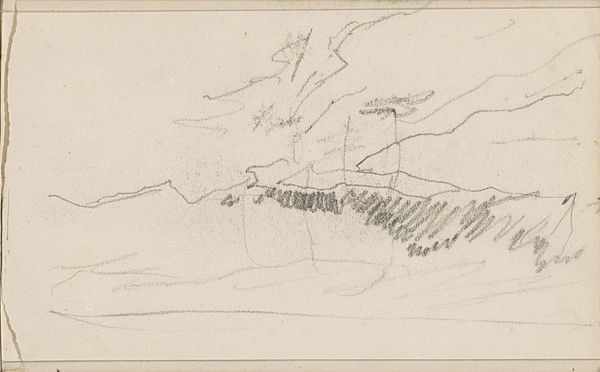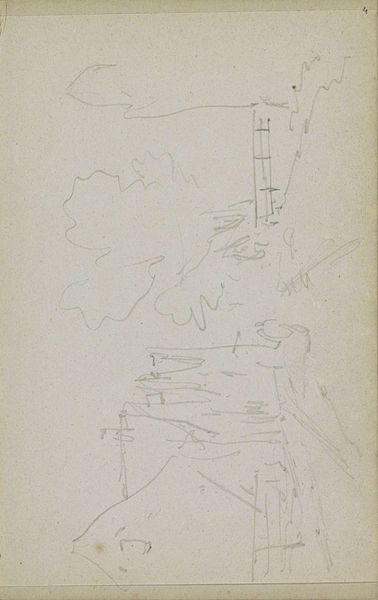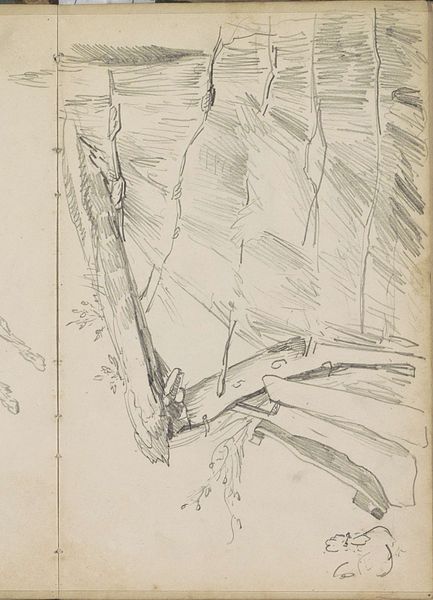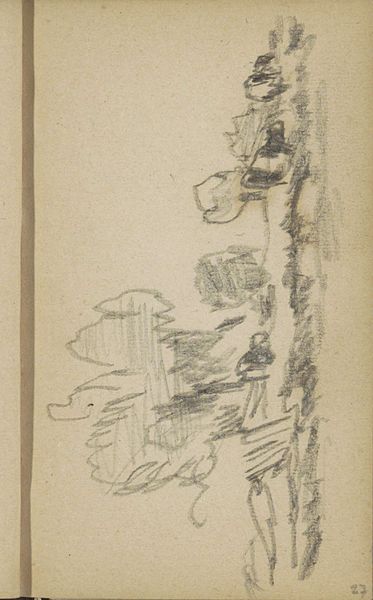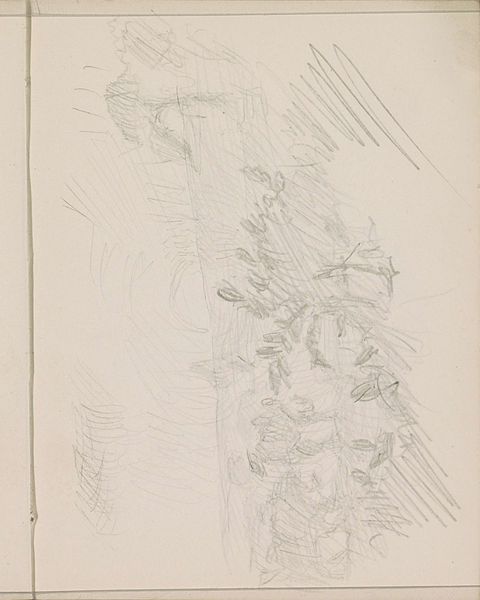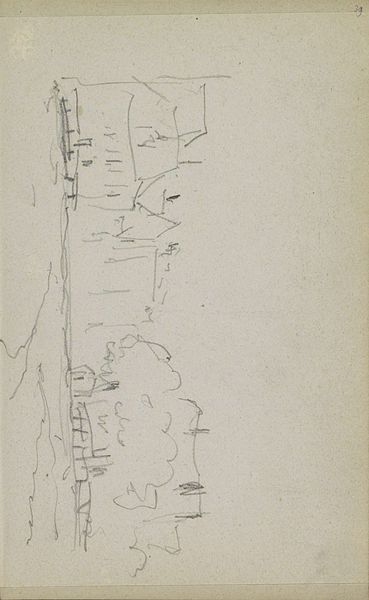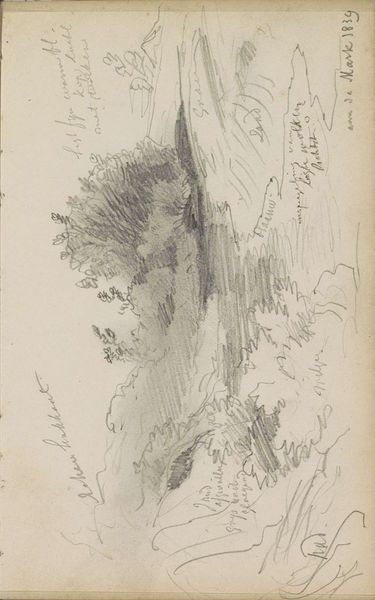
drawing, paper, pencil
#
drawing
#
pencil sketch
#
landscape
#
paper
#
road
#
geometric
#
pencil
#
line
#
realism
Copyright: Rijks Museum: Open Domain
Editor: Here we have Adrianus Eversen’s "Gezicht op een weg", or "View of a Road", dating roughly between 1828 and 1897. It’s a pencil drawing on paper. It strikes me as incredibly sparse; a landscape distilled down to its barest geometric forms. What do you see in this piece, considered from its historical context? Curator: This unassuming sketch speaks volumes about the rise of Realism in 19th-century Dutch art. While the Golden Age celebrated grand narratives and wealth, artists like Eversen started focusing on the everyday. What’s implied when a road becomes a worthy subject, devoid of heroic figures or overt moralizing? Editor: It suggests a democratization of art, maybe? The common person's experience takes center stage. Curator: Exactly. Think about the institutional shifts of the era. The art market was expanding, with more opportunities for artists outside the established academies. Who do you imagine would collect such a drawing, and why? Editor: Perhaps someone interested in urban planning or even a fellow artist studying perspective? It feels very practical. Curator: It highlights the burgeoning middle class with their interest in representing their environment. Eversen’s choice of medium, a simple pencil, further underscores accessibility. It moves away from the extravagant display of artistic skill seen in earlier periods and towards… what? Editor: Something more honest, perhaps? Less idealized? Curator: Precisely! A deliberate move away from the perceived artifice of academic painting. So, while seemingly simple, this 'view of a road' actually reflects profound social and artistic changes. Editor: That's fascinating. I hadn’t considered how the very subject matter could be a statement in itself. I’ll definitely look at Realist landscapes differently now. Curator: Me too, particularly considering how artists negotiate their role within evolving social structures.
Comments
No comments
Be the first to comment and join the conversation on the ultimate creative platform.
